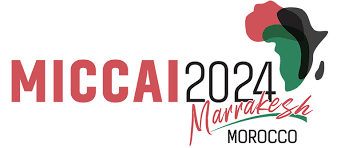Call for papers
Scope of the workshop
The domain of medical imaging is experiencing a transformative shift through the application of artificial intelligence and deep learning, providing clinicians with new tools for diagnosis and treatment planning. As these technologies evolve, they hold the potential to significantly enhance the accuracy and efficiency of medical imaging interpretations. Nevertheless, unlike other organs like the brain, lungs or liver, the pancreas has a uniquely complex anatomical structure that sets it apart as a significantly distinct case. Factors such as age, gender and adiposity may largely contribute to variations in pancreas’ size, shape and location. Despite its small size and similarity to surrounding abdominal tissues, diseases affecting the pancreas (diabetes, pancreatic cancer, pancreatitis) pose considerable threats to individuals.
Global statistics reveal a rising mortality rate associated with pancreatic diseases that shows a growing public health emergency worldwide. For instance, as outlined in the annual report of the American Cancer Society, in the United States alone, an estimated 66,440 cases of pancreatic cancer will be diagnosed in 2024, and 51,750 people will die from the disease. These statistics underscore the urgent need for advances in detection, diagnosis, and treatment strategies. AI offers a hope with the potential to significantly enhance diagnostic accuracy and the effectiveness of treatment for pancreatic diseases.
At MICCAI2024, the workshop “AIPAD: AI in Pancreatic Disease Detection and Diagnosis” will focus on the cutting-age of AI applications in pancreatic health, with a special emphasis on image analysis, while also encompassing the broader scope of deep learning applications such as predictive analytics, treatment planning, and outcome evaluation. Our goal is to catalyze collaborative problem-solving and spearhead innovation in this specialized yet critical area of medical imaging. Acknowledging the inherent challenges in pancreatic imaging, such as the low signal-to-noise ratio, prevalent motion artifacts, and the need for precise organ boundary delineation, the workshop will address how AI can navigate these issues to make a meaningful impact. Additionally, we recognize the potential value of a multimodal approach that integrates different data domains, enhancing our collective ability to understand and manage pancreatic diseases more effectively.
Topics
Expected submissions should cover, but are not limited to, the following topics:
- AI-driven techniques for enhancing pancreatic image quality and detail resolution.
- Deep learning models for accurate classification and segmentation of pancreatic structures.
- Multi-modal data integration using AI to provide a comprehensive view of pancreatic health.
- Addressing small sample sizes and class imbalance in pancreatic datasets with AI.
- AI solutions for artifact reduction and signal enhancement in pancreatic imaging.
- Utilizing transfer learning to supplement pancreatic imaging data scarcity with larger, external datasets.
- Weakly supervised learning for the detection, characterization, and risk assessment of pancreatic lesions with minimal annotated data.
- Use of foundational models in the development of diagnostic, prognostic, and therapeutic tools for pancreatic diseases.
- Examination of privacy-preserving techniques in AI for pancreatic health, addressing the challenges of data protection and confidentiality while enabling collaborative research and data sharing.
- Development of interpretable AI models for pancreatic imaging and data analysis, emphasizing the need for clear decision-making due to the pancreas’s complex anatomy and the often subtle presentation of pancreatic diseases.
- Creation and curation of richly annotated pancreatic datasets for AI applications.
- AI methodologies for robust segmentation and quantification of pancreatic tumors.
- Tailored evaluation and validation frameworks for AI tools in pancreatic imaging.
- Discussion of ethical implications surrounding the application of AI in pancreatic imaging.
